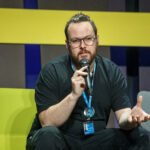Karin-Liis Tambaum /Karin-Liis photography
What do young people need to learn to participate?
There are two answers to this question. Nothing and almost anything. Participation is a right. Young people do not have to be trained or educated in a particular way to have this right, they have it automatically as part of their human rights.
However, developing relevant skills and competencies can help young people have a greater understanding of how our democracies work, stronger political voices, and ultimately make their participation initiatives more successful.
One of the Targets of Youth Goal#7 on Quality Learning is to ‘Ensure that young people have access to citizenship education to provide them with solid knowledge on political systems, democracy and human rights, attained also through community-based experiences in order to promote active civil participation’.
What competences are useful to learn?
The Council of Europe’s Reference Framework of Competences for Democratic Culture can be a useful starting point. The Framework is a set of materials that can be used to equip young people with all the competences that are needed to take action to defend and promote human rights, democracy and the rule of law, to participate effectively in a culture of democracy, and to live peacefully together with others in culturally diverse societies.
However, many other skills and competencies can also be helpful to support participation. Depending on what sort of initiative the young people are involved with, useful learning can include anything from lessons on climate change, understanding propaganda, or learning how to do social research.
The role of experiential learning in supporting youth participation
There are many different methodologies and pedagogies used to support learning in youth participation. But, experiential learning, sometimes called ‘learning by doing’, is one of the most participatory ways to learn.
In experiential learning, participants lead the learning process, taking charge of what they want to learn and what conclusions they come to. Experiential learning allows young people to learn from each other and their own experiences, come to their own conclusions about the world around them, and consider what actions they might want to take to change it. Learning happens through a cycle of experience, reflection, generalising and actively experimenting. Experiential learning can be supported by an educator or youth worker, but this person is not considered an expert in the topics. Their role is only to guide the process.
This can be contrasted to formal learning which is associated with traditional school systems. In formal learning the teacher is the expert in the topic and their role is to give knowledge to the students. The teacher sets the curriculum, making decisions about what should be learnt by the students. The teacher also defines what is considered correct and truthful and the students are expected to learn this from the teacher.
Formal learning leaves the young person with little power to control or influence what they want to learn. There is also little chance for young people to come to their own conclusions about what is correct and truthful from their experience. It places the teacher in a position of power controlling the young people’s learning. For these reasons, it is considered one of the least participatory forms of learning.
In practice, most educational experiences have elements of both approaches. Both experiential learning and formal learning can still be useful for youth participation. Imagine a group of young people who want to learn how to run a political campaign. Using the experiential learning method, they would start by launching the campaign, and then learning from whatever successes and failures might happen. The campaign might fail completely, but the young people would learn from this experience and be ready to try again with new methods and approaches. By contrast, in the formal method the group begins by asking a ‘campaigns expert’ to provide training. The expert gives information on tried and tested campaign methods, and the group copies these methods. This might make the campaign less likely to fail. But it limits the possibility for the young people to innovate, create their own campaign approaches, and find their own path.





